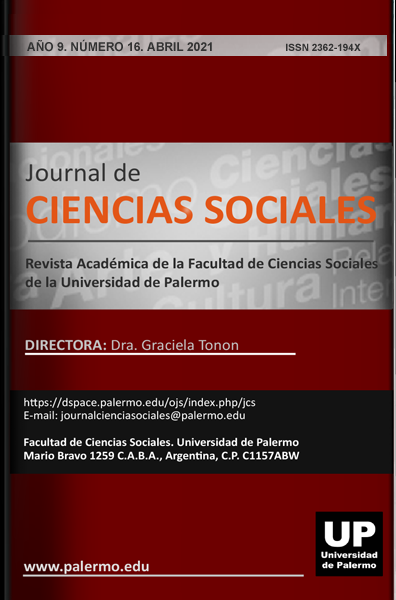El Journalistic treatment of information vs. infodemic in pandemic times: contrasts between professional journalism and so-called citizen journalism.
Abstract
In a landscape of challenges, crisis and accelerated technological evolution, the COVID-19 pandemic accentuated the positive and negative aspects of the informational context linked to the real and virtual world: first, remote work with portable digital communication tools, provides access to broadcast and distribute without intermediaries and with a speed unthinkable in traditional media. Second, the overproduction of information, thanks to these new processes available to everyone, pose risks that result in misinformation, fake or misleading news and the handling of data at convenience by public or private entities. This historical moment requires a reflection of the information processes from the media and from abroad, where civil society produces, circulates, accelerates or slows down the messages that are relevant to it. It is pertinent to re-take advantage of digital communication tools with an ethical and professional use, where journalists, the media and universities have a leadership role and an example in the face of the abundance of information, which in the environment of the pandemic has been cataloged as infodemic.
Downloads
References
Barrios-Rubio, A. (2014). El comunicador en el entorno digital. Cuadernos.Info, 34, 165–181. https://doi.org/10.7764/cdi.34.519
Becerra, A. (2020). Hace falta democratizar el conocimiento: las revistas científicas acaparan el saber. Revista Mexicana de Comunicación, 145. http://mexicanadecomunicacion.com.mx/hace-falta-democratizar-el-conocimiento-las-revistas-cientificas-acaparan-el-saber/?utm_source=rss&utm_medium=rss&utm_campaign=hace-falta-democratizar-el-conocimiento-las-revistas-cientificas-acaparan-el-saber
Duarte, F. (9 de septiembre de 2019). Los países en los que la gente pasa más tiempo en las redes sociales (y los líderes en América Latina). BBC News Mundo. https://www.bbc.com/mundo/noticias-49634612
Estrada-Cuzcano, A., Alfaro-Mendives, K. y Saavedra-Vasquez, V. (2020). Disinformation y Misinformation, Posverdad y Fake News: precisiones conceptuales, diferencias, similitudes y yuxtaposiciones. Información, Cultura y Sociedad, 42 (junio), 93–106. http://revistascientificas.filo.uba.ar/index.php/ICS/article/view/7427/7088
Fundéu RAE. (24 de marzo de 2020). «infodemia», neologismo válido | Fundéu. https://www.fundeu.es/recomendacion/infodemia/
Galdón, G. (2001). Introducción a la comunicación y a la información. Ariel
Leñero, V. y Marin, C. (1986). Manual de periodismo. Grijalbo.
Loya, S. (2019). Manual de estilo de Proceso. Grijalbo Mondadori.
Massiah, M. (1 de agosto 2019). Las redes sociales más utilizadas en Latinoamérica. Trecebits.Com https://www.trecebits.com/2019/08/01/conoce-cuales-son-las-redes-sociales-mas-utilizadas-en-latinoamerica/
Mottola, S. (2020). Las fake news como fenómeno social. Análisis lingüístico y poder persuasivo de bulos en italiano y español. Discurso & Sociedad, 14(3), 683–706. http://www.dissoc.org/ediciones/v14n03/DS14(3)Mottola.pdf
Wolton, D. (2004). La otra mundialización. Los desafíos de la cohabitación cultural global. Gedisa.
The authors retain the rights to their work guaranteeing this journal the right of first publication, committing to cite the Journal of Social Sciences as a reference of the original publication.
The works published in the Journal are published under the terms indicated in the Creative Commons License with the International Attribution 4.0 (CC BY 4.0).




























